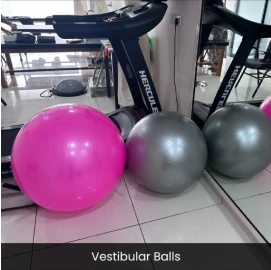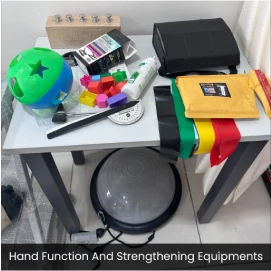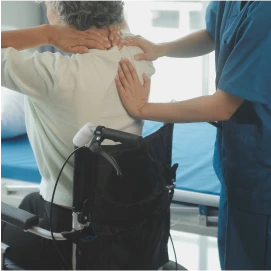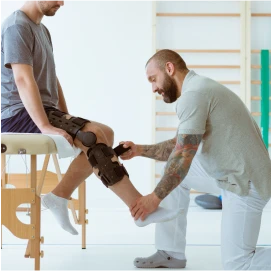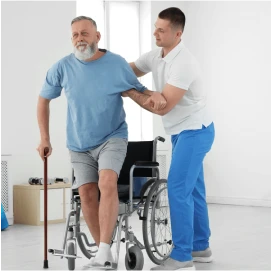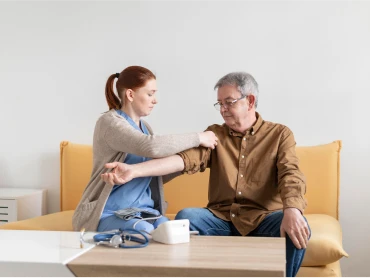Physio Care
Medically, neurological disorders are problems that affect the brain as well as the nerves found throughout the human body including the spinal cord.

Restore range of motion
Improve functional movement and strength
Gait Training, Postural realignment
Improve the safety of transfers and mobility
Balance retraining and decrease the risk of fall
Core stabilization, Activities of Daily Living (ADL) performance
Visual Perceptual Skill Retraining
Cardiovascular endurance
Improve motor planning and motor control
Decrease spasticity/tone, Prosthesis/orthosis training
Sensory re-education
Role of Physiotherapists in Neurological conditions
Neurological Physical Therapy is a specialized, comprehensive evaluation and treatment of individuals with movement problems caused by nervous system disease or injury. Advanced Physical Therapy offers one-on-one treatment to recover function and improve overall quality of life.
01. What is a neurological problem?
Neurological disorders are conditions that impact the spinal cord, brain, and body's nerves.
02. What are Neurological Disorders Symptoms?
1. Pain. 2. Difficulties with Memory · 3. Numbness. 4. Sleep Issues 5. Partial or complete loss of vision 6. Difficulty in walking 7. Difficulty in activities of daily living 8. Loss of sensations…etc
03. Which special techniques are used for neurological rehabilitation in one step physio?
Neuro developmental therapy ( NDT), and sensory integration (SI)
Motor control training , Balance training, and vestibular rehabilitation
Strength training, ADL ( Activities of daily living) training, Stretching
Muscle stimulation, Proprioceptive training, and functional training
Fine motor skills training, etc.
04. Which nurological conditions are treated in one step physio?
1.Hemiplegia, 2. Paraplegia, 3.Stroke 4. Meningitis, 5. Parkinson's disease 6. Guillain-Barre- Syndrome (G.B.S.), 7. Muscular Dystrophy, 8. polyneuropathy, 9. Motor neurone disease, 10. Neurofibroma Tumor, 11. Hemorrhage, 12. Post neurosurgical Patient, 13. Cerebral palsy, 14. Diabetic nurolopathy

